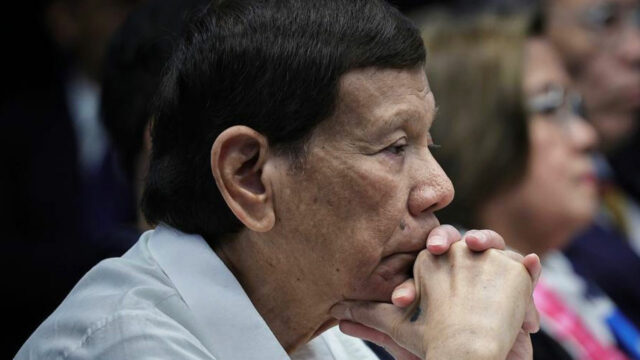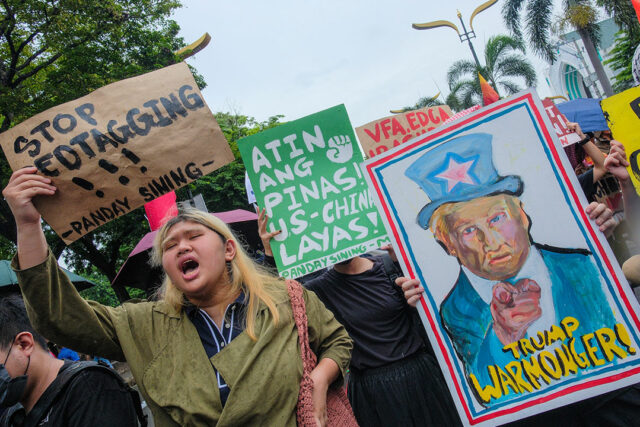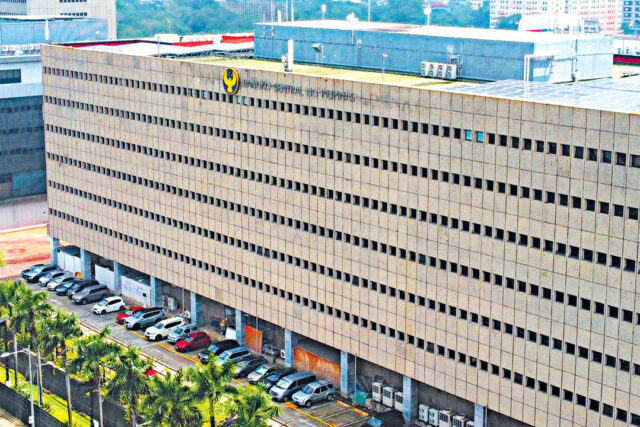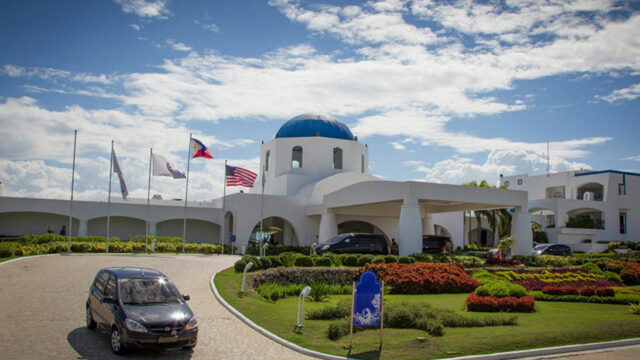ICC decision on ex-Pres. Duterte’s release plea won’t trigger change in foreign policy
By Chloe Mari A. Hufana, Reporter
THE PHILIPPINES is unlikely to alter its foreign policy stance even if the International Criminal Court (ICC) grants interim release to former President Rodrigo R. Duterte, a diplomacy expert said, as the country remains committed to international norms despite the political sensitivity of the case.
This comes after Mr. Duterte’s legal team sought his interim release from the Hague-based tribunal, citing his old age and health condition. He is awaiting trial for alleged crimes against humanity during his bloody drug war.
If approved, the move would require a third-party state to host the former leader under strict ICC-imposed conditions — a rare and diplomatically complex process that has only been successfully executed once in the court’s history in the case of Jean-Pierre Bemba from the Democratic Republic of the Congo.
“Such a move will not run counter to our national interests, and our respect of the court’s decision on the interim release would just substantiate and be a manifestation of our commitment to such standards,” said Josue Raphael J. Cortez, diplomacy lecturer at De La Salle-College of St. Benilde, via Facebook Messenger.
Any arrangement for interim release, Mr. Cortez noted, would require delicate negotiations to align the ICC’s terms with the domestic laws of the host country. “This can be tricky,” he said. “There are possibilities that ultra-nationalistic countries, which view international law as something that must be enacted domestically, would not concur with such provisions.”
Only Belgium, the Netherlands’ neighbor, has formalized an agreement with the tribunal to host ICC detainees that were given interim release, he added.
“This is something that the ICC also hopes to serve as a trailblazer for other countries that are parties to the Rome Statute, as the functioning of the court heavily relies on the cooperation of signatories to the statute, as enshrined as well in its very provisions,” he added.
“This is still a fairly new practice,” Mr. Cortez said. “The case of Belgium may serve as the litmus test on whether such agreements would work and if they are a viable strategy that other countries may follow in the long run.”
Meanwhile, the 1Sambayan coalition, a group of Filipino civil society organizations, urged the ICC to reject the firebrand leader’s request for an interim release, a move it “vehemently condemned.”
“Duterte’s alleged crimes against humanity are not mere allegations; they are documented accounts of systematic violence, extrajudicial killings, and the widespread suppression of dissent that left a trail of suffering and shattered lives across the nation,” it said in a statement late Saturday.
The ICC probe, it said, is a symbol of hope for justice for thousands of alleged victims.
According to the group, Mr. Duterte’s interim release “poses a grave threat to the safety and well-being of witnesses and the families of victims” participating in the probe.
“1Sambayan demands that the ICC reject Duterte’s request unequivocally and ensure that the investigation proceeds without obstruction.”
‘NOT A FLIGHT RISK’
In a 16-page urgent request dated June 12, Mr. Duterte’s lead counsel, Nicholas Kaufman, said an unnamed government had expressed willingness to receive the former president into its territory if the ICC grants interim release.
The country was not the Philippines, which withdrew from the ICC in 2019.
“Mr. Duterte is not a flight risk, and custody is not necessary to ensure his appearance before the Court,” the filing read. “Accordingly, there is more than good reason to believe that Mr. Duterte would not embarrass his hosts, and the hospitality afforded him, by violating the terms of his release.”
Mr. Duterte’s lawyer argued that the former president poses no flight risk or threat to the ICC proceedings, citing his global profile and diminished political power.
He argued Mr. Duterte would be easily located if needed and that his relocation to an undisclosed country would place him outside the jurisdiction of the alleged crimes. The defense also emphasized that Mr. Duterte no longer holds office and no longer wields the authority he allegedly abused.
Malacañang will abide by whatever decision the ICC makes on Mr. Duterte’s petition for interim release, according to Presidential Communications Undersecretary Clarissa A. Castro.
While deferring to the ICC’s jurisdiction, she raised questions about the language used in Mr. Duterte’s legal filing, suggesting that the defense’s claim he would “not continue to commit crimes” could be interpreted as an implicit admission of past wrongdoing.












